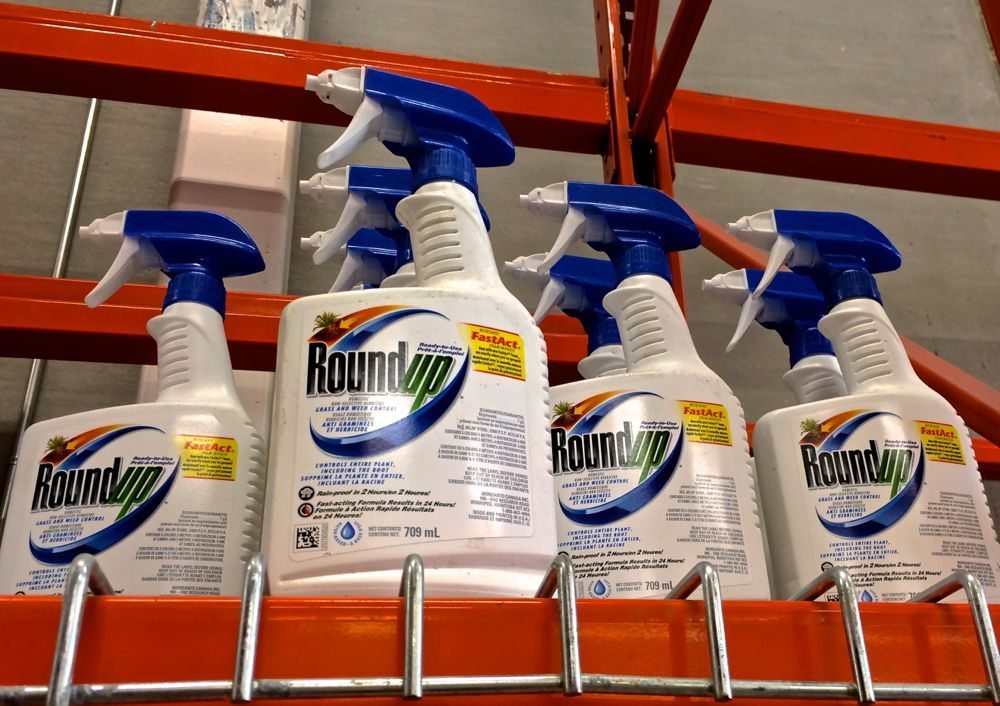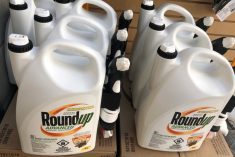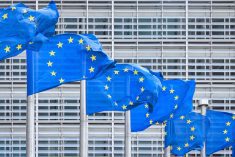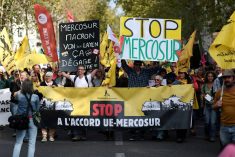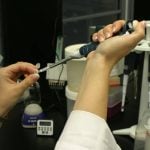Brussels | Reuters — The European Union on Thursday delayed a vote on renewing sales approval for the herbicide glyphosate, used in Monsanto’s Roundup, amid a transatlantic row over whether it may cause cancer.
Experts from the EU’s 28 nations had been due to vote on a proposal to extend by nine years licensing of the herbicide, widely used by farmers and gardeners.
EU sources said the delay was due to opposition in France and Germany, which have big farming and chemicals industries.
Without their support, the European Commission lacks the majority it needs for a binding vote: “Since it was obvious that no qualified majority would have been reached, a vote was not held,” a Commission spokeswoman said.
Read Also

U.S. grains: Soy rally continues after Trump says China to expand purchases
Chicago | Reuters – Chicago soybeans extended gains on Thursday, a day after U.S. President Donald Trump said China had…
The EU executive had hoped for a decision to stop the clock ticking on a six-month phase-out period for glyphosate products when the existing authorization lapses at the end of June.
In response to opposition, it had already postponed a vote in March and shortened the licence to nine years from 15. The new proposal would ban some products because of the substances they combine with glyphosate, which could add to risks.
The banned list of so-called co-formulants includes POE-tallowamine, which is no longer sold in glyphosate-containing pesticides in Germany.
Germany had planned to abstain from voting because ministries run by different parties in the ruling coalition remain at odds, a government spokesman told Reuters.
Last month, the European Parliament recommended that glyphosate should only be approved for another seven years, and should not be used by the general public.
As the debates were continuing in Brussels, German chemicals group Bayer made an unsolicited takeover bid for U.S. seeds company Monsanto, for which the regulatory controversy over glyphosate has been one of a number of recent problems.
“This delay undermines the credibility of the European regulatory process and threatens to put European farmers… and chemical industries at a competitive disadvantage,” Monsanto’s vice-president of global regulatory and governmental affairs, Philip Miller, said.
If no decision is reached to extend the licence, a spokesman said the company could not rule out seeking legal remedy.
Arguments
Contradictory findings on its carcinogenic risks by various scientific bodies have thrust glyphosate into the centre of a dispute among EU and U.S. politicians, regulators and researchers.
Public campaigning by citizen groups has made some EU governments wary of re-approving the substance.
Experts from the U.N.’s Food and Agriculture Organization (FAO) and World Health Organization (WHO) this week said glyphosate is unlikely to pose a risk to humans exposed to it through food. It is mostly used on crops.
The finding matches that of the European Food Safety Authority (EFSA), an independent agency funded by the European Union, but runs counter to a March 2015 study by the WHO’s Lyon-based International Agency for Research on Cancer (IARC).
That agency said glyphosate is “probably” able to cause cancer in humans and classified it as a “Group 2A” carcinogen. It says it assesses whether the substance can cause cancer in any way — regardless of real-life conditions on typical levels of human exposure or consumption.
Environmental groups have questioned the independence and transparency of scientists testing for health risks and called for the EU to err on the side of caution.
“It’s time for the Commission to change course,” said Greenpeace’s EU food policy director Franziska Achterberg.
— Alissa de Carbonnel is an energy and environment correspondent for Reuters in Brussels. Additional reporting for Reuters by Michelle Martin in Berlin and Kate Kelland in London.

